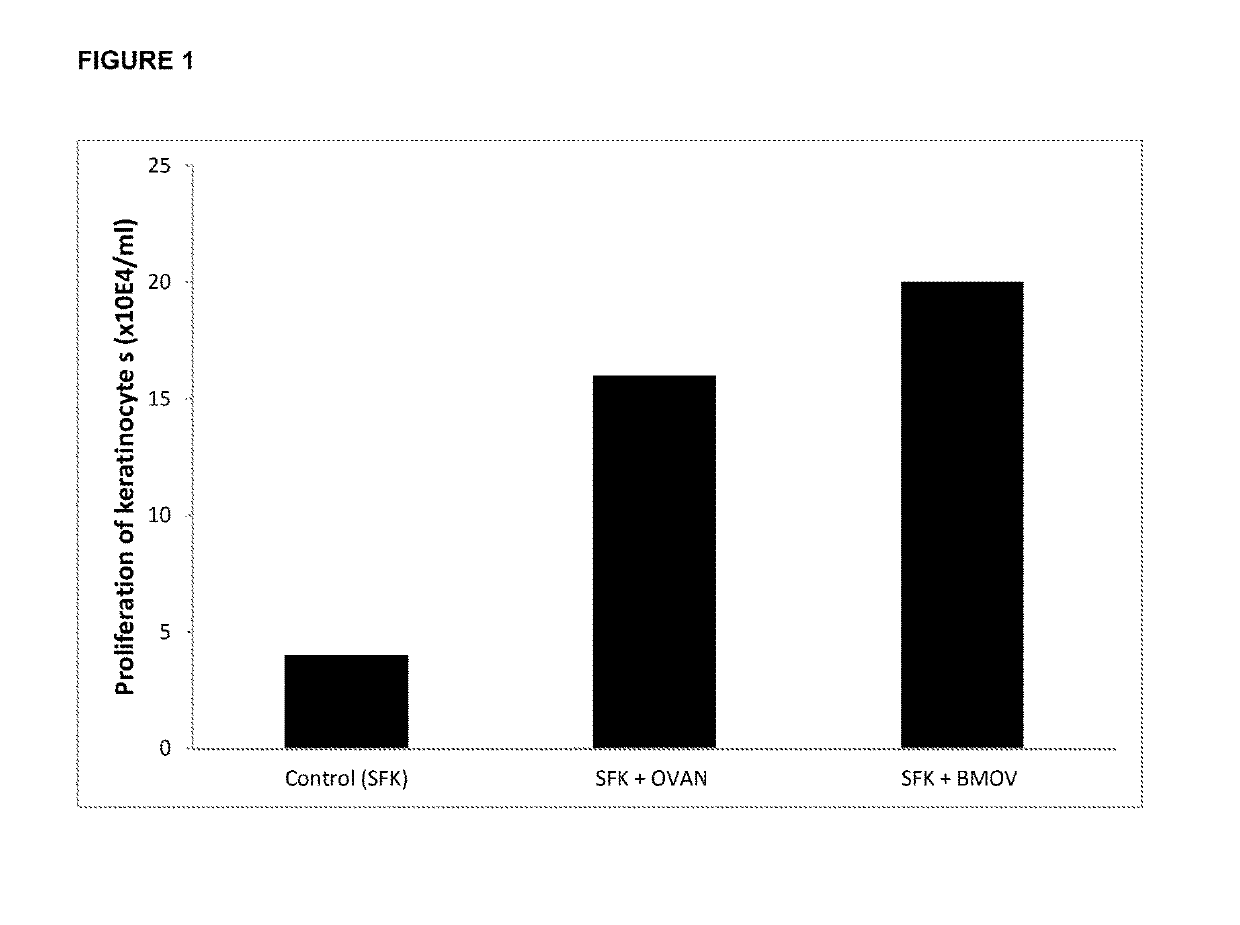Composition and method for generating a desired cell type and/or tissue type from hair follicular stem cells
a technology of hair follicle stem cells and cell types, applied in the field of tissue engineering, can solve the problems of high cost, high ethical concerns, and inability to naturally differentiate into any type of cells, and achieve the effects of reducing the cost reducing and increasing the number of induced pluripotent stem cells
- Summary
- Abstract
- Description
- Claims
- Application Information
AI Technical Summary
Benefits of technology
Problems solved by technology
Method used
Image
Examples
example 1
n of Hair Follicular Stem Cells
[0113]Hair follicular stem cells were obtained from plucked hairs in the anagen phase, which were obtained from a donor subject, using a plucking instrument such as a hollow harvesting needle. Plucked hairs were inspected under a microscope. Plucked hairs not displaying the characteristics of a hair in the anagen phase were discarded.
example 2
ment of Hair Follicular Stem Cells
[0114]Plucked hairs in the anagen phase were immersed in 1% collagenase type IV for 2 hours at 37° C. in order to enzymatically dissociate the hair follicular stem cells from the hair follicle. Hair follicular stem cells were then rinsed several times, and resuspended in culture medium.
example 3
n and Culture of CD34-Positive Cells
[0115]CD34-positive cells act as “circulating fibrocytes” and their function is dependent on the environment. For instance, in wound healing CD34-positive cells concentrate around the damaged tissue. In the context of tissue generation, CD34-positive cells act as a stem cell enhancer. Specifically, when hair follicular stem cells are cultured together with CD34-positive cells, hair follicular stem cells are able to proliferate without supplement.
[0116]CD34-positive cells were obtained from the peripheral circulation of a donor subject. CD34-positive cells were isolated from the blood using a MACS cell separation kit (Miltenyl Biotec). Isolated CD34-positive cells were then rinsed several time, resuspended in the culture medium (RPMI 1640, GIBCO, Invitrogen) containing autologous serum, and cultured in the same medium for a period of 8 weeks.
PUM
| Property | Measurement | Unit |
|---|---|---|
| concentration | aaaaa | aaaaa |
| concentration | aaaaa | aaaaa |
| concentration | aaaaa | aaaaa |
Abstract
Description
Claims
Application Information
 Login to View More
Login to View More - R&D
- Intellectual Property
- Life Sciences
- Materials
- Tech Scout
- Unparalleled Data Quality
- Higher Quality Content
- 60% Fewer Hallucinations
Browse by: Latest US Patents, China's latest patents, Technical Efficacy Thesaurus, Application Domain, Technology Topic, Popular Technical Reports.
© 2025 PatSnap. All rights reserved.Legal|Privacy policy|Modern Slavery Act Transparency Statement|Sitemap|About US| Contact US: help@patsnap.com

